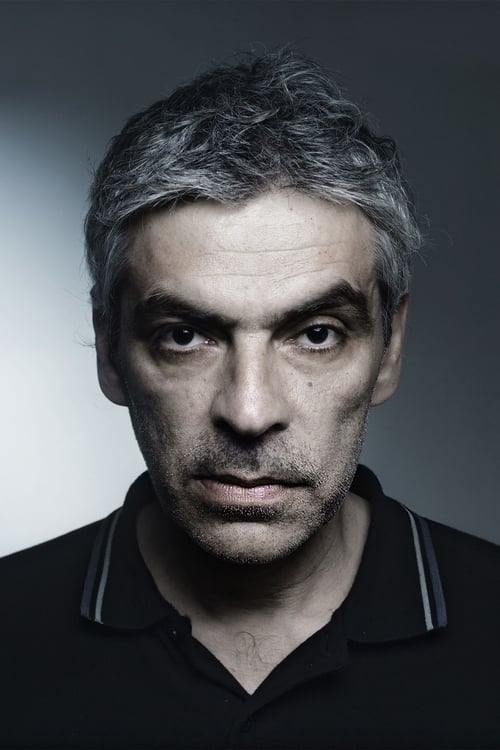
Pedro Costa
Birth : 1958-12-30, Lisbon, Portugal
History
Pedro Costa is a Portuguese film director. While studying history at University of Lisbon, Costa switched to film courses at Lisbon Theatre and Film School (Escola Superior de Teatro e Cinema) where he was a student of António Reis, Paulo Rocha and Alberto Seixas Santos. After working as an assistant director to several directors such as Jorge Silva Melo, Vítor Gonçalves and João Botelho, he made a first feature film O Sangue (The Blood) in 1989. He collected the France Culture Award (Foreign Cineaste of the Year) at 2002 Cannes Film Festival for directing the film In Vanda's Room. Colossal Youth was selected for the 2006 Cannes Film Festival and earned the Independent/Experimental prize (Los Angeles Film Critics Association) in 2008. He is considered to be part of "The School of Reis" film family. António Reis, Portuguese director, was his teacher at the Lisbon Theatre and Film School. Peter Bradshaw of The Guardian called Pedro Costa "the Samuel Beckett of cinema". He is acclaimed for using his ascetic style to depict the marginalised people in desperate living situations. Many of his films are set in a district of Lisbon inhabited by socially disadvantaged and shot in a natural and low-key way in documentary format: some are docufictions.

Apichatpong Weerasethakul, Pedro Costa, Manoel de Oliveira y and the film's director, with their own personal views, share that thin line that links life with cinema.

Director
"As Filhas do Fogo" follows the story of three young cape-verdean sisters upon their arrival at a foreign European port, in an attempt to escape another devastating eruption of the volcano Fogo. In this unknown country, they roam, hand in hand, evoking their secret fears through music and singing.

Screenplay
A Cape Verdean woman navigates her way through Lisbon, following the scanty physical traces her deceased husband left behind and discovering his secret, illicit life.

Director
A Cape Verdean woman navigates her way through Lisbon, following the scanty physical traces her deceased husband left behind and discovering his secret, illicit life.

Himself
“Sacavém” is a journey through Pedro Costa’s films and focused on his work on “Down to Earth”, “Bones”, “In Vanda's Room“, “Colossal Youth” and “Horse Money” Built on the visual and sound landscape of Pedro Costa’s films and accompanied by his owns reflections on the matter, “Sacavém” serves the audience has a window on how Costas cinema is sensed and conceived.

Himself
Six authorities of cinema describe their approach to transcendence, mysticism, spirituality and life after dead.
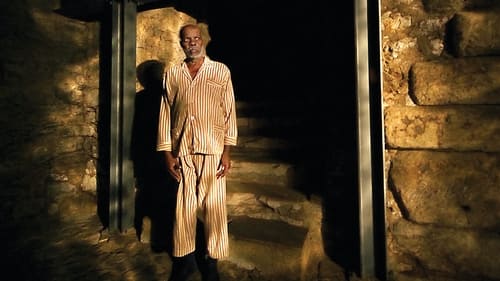
Writer
While the young captains lead the revolution in the streets, the people of Fontainhas search for Ventura, lost in the woods.

Director
While the young captains lead the revolution in the streets, the people of Fontainhas search for Ventura, lost in the woods.

Director of Photography
Four voices and their visions of Guimarães, cradle city of the Portuguese nation and European Capital of Culture in 2012.

Screenplay
Four voices and their visions of Guimarães, cradle city of the Portuguese nation and European Capital of Culture in 2012.

Director
Four voices and their visions of Guimarães, cradle city of the Portuguese nation and European Capital of Culture in 2012.

Writer
A participant in a coup d'état by young commissioned officers, Ventura loses his way within the woods. Eventually, Ventura is admitted into a mental hospital where he has conversations with "ghosts" of the past in the hospital's elevator.

Director
A participant in a coup d'état by young commissioned officers, Ventura loses his way within the woods. Eventually, Ventura is admitted into a mental hospital where he has conversations with "ghosts" of the past in the hospital's elevator.

Story
O Nosso Homem (Our Man) is a short variation in the line of the trilogy Pedro Costa has devoted to the habitants of the Fontainhas quarter, which has been destroyed in the meantime. It can be considered as a sort of appendix to the third part, Juventude en Marcha (Colossal Youth), in which the hero, Ventura, reappears as one of the four characters of this dialogue of hopelessness.

Director
O Nosso Homem (Our Man) is a short variation in the line of the trilogy Pedro Costa has devoted to the habitants of the Fontainhas quarter, which has been destroyed in the meantime. It can be considered as a sort of appendix to the third part, Juventude en Marcha (Colossal Youth), in which the hero, Ventura, reappears as one of the four characters of this dialogue of hopelessness.

Cinematography
One of the most important figures in contemporary cinema, Pedro Costa's celebrated music documentary is a mesmerizing portrait of French actress-turned-singer Jeanne Balibar, a transfixing, cigarette-smoking chanteuse with an intense devotion to her craft. Photographed in shimmering black-and-white and featuring a soundtrack of jazz-inflected pop songs, the film is a luminous exploration of the creative process.

Director
One of the most important figures in contemporary cinema, Pedro Costa's celebrated music documentary is a mesmerizing portrait of French actress-turned-singer Jeanne Balibar, a transfixing, cigarette-smoking chanteuse with an intense devotion to her craft. Photographed in shimmering black-and-white and featuring a soundtrack of jazz-inflected pop songs, the film is a luminous exploration of the creative process.

Director
An omnibus project examining, well, the state of the world.

Director
Pedro Costa's segment from the Jeonju film "Memories".

Director
Pedro Costa's segment from "O Estado do Mundo".

Director
Previously focused on Asian directors, “Jeonju Digital Project 2007” takes a look at Europe. The Portuguese filmmaker Pedro Costa, the German filmmaker Harun Farocki, and the French filmmaker Eugène Green participated in this project.

Story
Previously focused on Asian directors, “Jeonju Digital Project 2007” takes a look at Europe. The Portuguese filmmaker Pedro Costa, the German filmmaker Harun Farocki, and the French filmmaker Eugène Green participated in this project.

With this movie, Aurélien Gerbault invites us to know the portuguese filmmaker Pedro Costa and to witness the process of shooting of his movie Colossal Youth (2006). The nature of Costa's cinema is revealed to us: the criation of an intimate space in the hardness of reality.

Writer
After the Portuguese government demolishes his slum and relocates him to a housing project on the outskirts of Lisbon, 75-year-old Cape Verde immigrant Ventura wanders between his new and old homes, reconnecting with people from his past.

Cinematography
After the Portuguese government demolishes his slum and relocates him to a housing project on the outskirts of Lisbon, 75-year-old Cape Verde immigrant Ventura wanders between his new and old homes, reconnecting with people from his past.

Director
After the Portuguese government demolishes his slum and relocates him to a housing project on the outskirts of Lisbon, 75-year-old Cape Verde immigrant Ventura wanders between his new and old homes, reconnecting with people from his past.

Director
Pedro Costa's 2006 installation Little Boy Male, Little Girl Female is made up of additional footage from In Vanda's Room and Colossal Youth. Interior and exterior spaces in Fountainhas are set side by side. Editing the images is left up to the viewer.
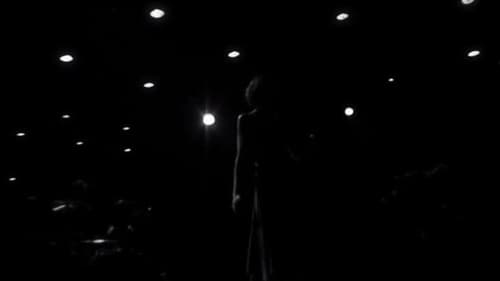
Director
A short film showing a rehearsal and live performance by Jeanne Balibar. Costa would go on to make a feature-length documentary with the same title and subject matter in 2009.

Director

Director of Photography
Undaunted by a commission to make a film about his mentors and aesthetic exemplars, the filmmaking team of Jean-Marie Straub and Danièle Huillet, Costa records with great sensitivity and insight the exacting process by which the two re-edit their film Sicilia!, discussing and arguing over each cut and its effect. Incorporating comments about the influence of figures as diverse as Chaplin and Eisenstein, about the ethical and aesthetic implications of film technique and such matters as rhythm, sound mixing, and acting. The film becomes a tour de force, immersing us in the mysteries of cinema as practiced by some of its greatest creators. Costa calls the film both his first comedy and his first love story.

Director
Undaunted by a commission to make a film about his mentors and aesthetic exemplars, the filmmaking team of Jean-Marie Straub and Danièle Huillet, Costa records with great sensitivity and insight the exacting process by which the two re-edit their film Sicilia!, discussing and arguing over each cut and its effect. Incorporating comments about the influence of figures as diverse as Chaplin and Eisenstein, about the ethical and aesthetic implications of film technique and such matters as rhythm, sound mixing, and acting. The film becomes a tour de force, immersing us in the mysteries of cinema as practiced by some of its greatest creators. Costa calls the film both his first comedy and his first love story.

Screenplay
A man is standing at the window, holding a chair. There are wafts of street noise, and occasionally the curtain flutters. A dog is barking. Then, elegiac music sets in, a lavish string arrangement of Billie Holiday's The End of a Love Affair. With this one-shot film, Pedro Costa portrays the state of feeling of the afterwards of a love affair which led nowhere.

Director
A man is standing at the window, holding a chair. There are wafts of street noise, and occasionally the curtain flutters. A dog is barking. Then, elegiac music sets in, a lavish string arrangement of Billie Holiday's The End of a Love Affair. With this one-shot film, Pedro Costa portrays the state of feeling of the afterwards of a love affair which led nowhere.

Director of Photography
The original television version of 'Where Does Your Hidden Smile Lie?'

Director
The original television version of 'Where Does Your Hidden Smile Lie?'

Intertwined interviews of filmmaker Pedro Costa and philosopher Jean-Luc Nancy.

Director
Six unused scenes from Where Does Your Hidden Smile Lie? One of the more priceless of the “bagatelles” in this collection features a lounging Jean-Marie Straub who gives a non-stop disquisition on liberty and filmmaking while Danièle Huillet busies herself with laundry, and their dog Melchior frisks in and out of frame. —Cinematheque Ontario
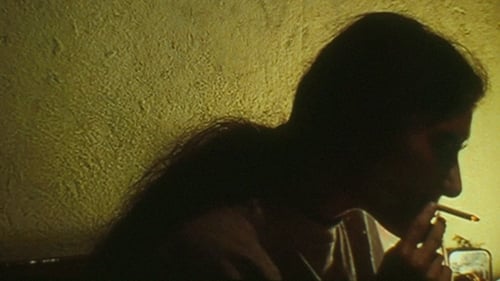
Screenplay
An unflinching, fragmentary look at a handful of self-destructive, marginalized people, but taking as main focus the heroin-addicted Vanda Duarte.

Director of Photography
An unflinching, fragmentary look at a handful of self-destructive, marginalized people, but taking as main focus the heroin-addicted Vanda Duarte.

Director
An unflinching, fragmentary look at a handful of self-destructive, marginalized people, but taking as main focus the heroin-addicted Vanda Duarte.
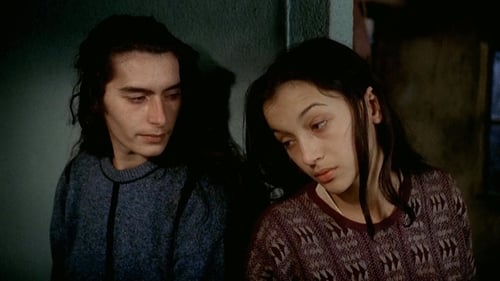
Screenplay
After a suicidal teenage girl gives birth, she misguidedly entrusts her baby’s safety to the troubled, deadbeat father, whose violent actions take the viewer on a tour of the foreboding, crumbling shantytown in which they live.

Director
After a suicidal teenage girl gives birth, she misguidedly entrusts her baby’s safety to the troubled, deadbeat father, whose violent actions take the viewer on a tour of the foreboding, crumbling shantytown in which they live.

Writer
The film tells a story of Mariana, a nurse who leaves Lisbon to accompany an immigrant worker in a comatose sleep on his trip home to Cape Verde. The devoted Portuguese nurse took a journey only to find herself lost in abstract drama.

Director
The film tells a story of Mariana, a nurse who leaves Lisbon to accompany an immigrant worker in a comatose sleep on his trip home to Cape Verde. The devoted Portuguese nurse took a journey only to find herself lost in abstract drama.

Editor
On an isolated Portuguese island, a nameless man makes a mental journey which brings him into contact with the strange and menacing world without peace and harmony.

Screenplay
Nino, tough but sickly, and his older brother Vicente live in the country with their father. After their father disappears ― we’re never sure why ― murder is suggested. Vicente brings his girlfriend to the house, and a different kind of family is established as the three youngsters grow fiercely protective of each other. But their uncle grows suspicious about the fate of the missing father and forcibly kidnaps Nino, taking him away to the city and leaving Vicente to locate him there.

Director
Nino, tough but sickly, and his older brother Vicente live in the country with their father. After their father disappears ― we’re never sure why ― murder is suggested. Vicente brings his girlfriend to the house, and a different kind of family is established as the three youngsters grow fiercely protective of each other. But their uncle grows suspicious about the fate of the missing father and forcibly kidnaps Nino, taking him away to the city and leaving Vicente to locate him there.
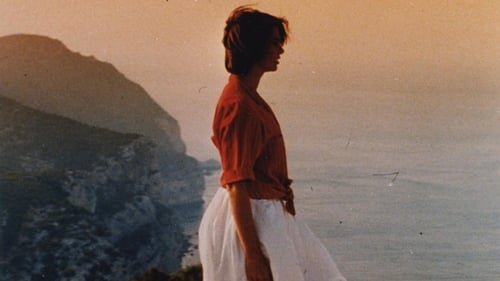
Assistant Director
Summer of 1964. The professor Carlos and the couple Dário and Alda spend time together in the beach during vacations. Away from the colonial war, everything seems lost in time.

Assistant Director
It is the end of summer and Isabel is a relationship with Diogo. She don't quite know what she wants from her life going forward as her father gets sick.

Assistant Director
In Africa, during the colonial war, a patrol is lost in the bush and a soldier dies in operation. Twelve years later, in Portugal, the soldier family meets in peace.

Director
Pedro Costa first foray into filmmaking was a short-film co-produced for RTP within a series named “Cartas a Júlia.”

A conversation between Pedro Costa, Andy Rector and Craig Keller.


















